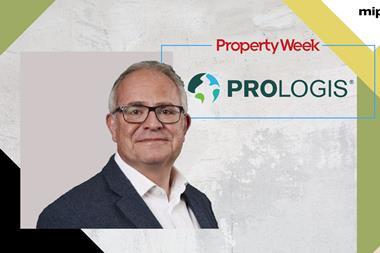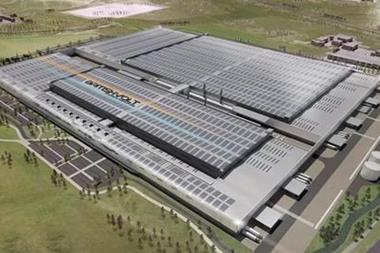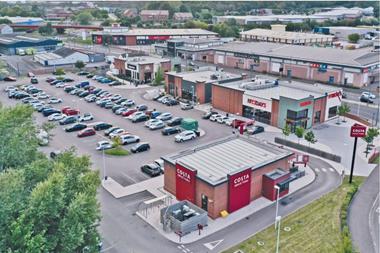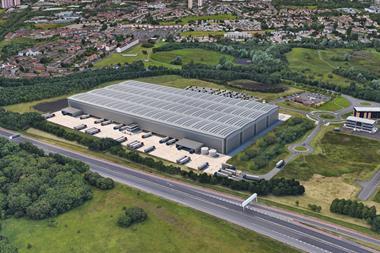Delegates at the sixth annual Logistics Spotlight Event hosted by event partners Tritax Symmetry, Savills, Analytiqa and Property Week, held in London late last month, heard about the need to connect different viewpoints to achieve shared environmental, social and governance (ESG) goals, and that the industrial and logistics (I&L) sector should not underestimate the strength of its position as a lobbying force with government.





At the breakfast event, Savills head of UK industrial and logistics Richard Sullivan noted that there is no single “straight line” to follow to reach the sector’s ambitious ESG goals. “There’s a very broad range of occupiers”, he added, acknowledging that each may take their own unique approach to tackling issues like sustainability.
Sullivan identified a “disconnect” that can open up between an occupier’s real estate strategy and its operational ESG goals – a gap in which the property sector can add value. “Occupiers are completely focused on the big areas that can make a difference [to ESG in their operations],” he said. “It’s our role in the property industry to ensure that we make buildings as green and as efficient as possible.”
He cited delivery giant DHL as an example of how priorities might diverge between building owners and occupiers. “The reality is [DHL] can save more on their carbon footprint, or do more with their transport sector, than anything that they do with their buildings. That’s the challenge, and the anomaly between what we’re trying to do in real estate and the focus on the operational side.”
The Spotlight event also revealed the findings of the annual I&L Census conducted by the event partners in late 2022. The census pooled opinions from advisers, agents, asset managers, consultants, developers, investors, landowners and occupiers across the I&L sector in the UK. It found that rising costs and the availability of labour were the most pressing concerns among occupiers, followed by a lack of supply of new buildings and the difficulties imposed by the planning system.
ESG commitments
Only a small minority (1.8%) of occupiers chose the implementation of sustainability measures as their most important challenge, underscoring the extent to which they expect developers to shoulder these issues. When asked to rank ESG measures, occupiers said that “carbon performance” was their top priority, substantially ahead of ‘softer’ outcomes such as staff wellbeing, social value or biodiversity.
Ian Starling, director of real estate at online grocer Ocado Group, acknowledged that “there will always be a trade-off” among different goals, but said: “ESG is definitely very high on our agenda.”
It’s our role in the property industry to ensure that we make buildings as green and as efficient as possible
Richard Sullivan
He added: “Approximately 20% of all emissions from our properties are within our control. From a property perspective, we are working with third parties to understand the carbon impact of both the build [phase] and use of our buildings moving forward.”
Phil Shepley, vice-president and head of commercial for UK, Ireland and South Africa at Iron Mountain, said he felt it was vital to choose “the right partner builder” to ensure that ESG factors are built-in.

Tom Leeming, development director at I&L developer Tritax Symmetry, outlined the operation and benefits of its first ‘energy centre’ development. “It takes the solar photovoltaic [PV] power generated on the roofs of the warehouses on site; it takes the green grid power supply; it blends these sources and monitors demand and prioritises sale of the PV power at discounted rates to the customers on site. With the added generator back up, the sites provide our customers with data centre-level power resilience.”
Rising costs
Among census respondents, 42% of warehouse occupiers said rising costs were a key factor impacting their business now. Turning specifically to logistics property, 30% of respondents suggested that employment issues were their greatest challenge.
However, 37% of occupiers said investing in automation was a key area of focus over the next three years, which will go some way to mitigating labour shortages.
While costs are rising, there remains clear demand for new warehouse space, with 91% of occupiers suggesting they expect to take the same or more amount of warehouse space in the next two years. With a continued supply and demand imbalance, this would suggest occupiers should expect rents to continue rising, albeit not at the same pace as they have done in the past three years.
It’s all very well to say the planning system is hopeless, but what would a good planning system look like?
Alastair Campbell
“The general view is we’re still going to experience a period of rental growth, there will be regional differences and we’re going to see differences around the building sizes,” said Sullivan. “It’s probably not great news for the occupier world as the rental growth story is going to continue, and there will be some concerns around demand and supply.”
Political uncertainty
Alastair Campbell, former director of communications under prime minister Tony Blair, delivered a keynote speech at the event. He discussed recent political upheaval, the likely outcome of the next general election and how I&L businesses could best seize the attention of policymakers.
Planning reform “has to be addressed” by the next government, Campbell said.
“Don’t underestimate the strength of your own position,” he added. “Most people in most sectors feel put upon; they feel misunderstood. They feel the government doesn’t understand, care about or appreciate them. Everybody feels that – and most of the time they’re wrong. Your challenge is to build an argument, build a strategy and then take that forward together.”
Campbell said: “If we did get 10 minutes in front of the next prime minister, whoever he or she may be, what is the one thing we want improved? It’s all very well to say the planning system is hopeless, but what would a good planning system look like?”
He advised using conventional media and social media to build engagement and agreement. “Devise your own strategy by being absolutely honest about whether you’re making a point that is genuinely deliverable,” Campbell said. “Yes, [you’ll want reform] to your benefit but, also, how it can benefit others?”

































No comments yet